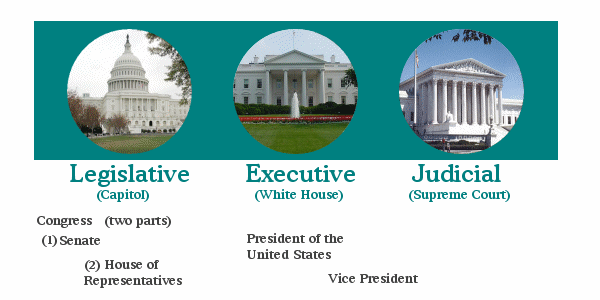Three Branches of Government
The three branches of the U.S. Government are the legislative, executive, and judicial.
Article I of the Constitution defines the legislative branch and vests power to legislate in the Congress of the United States.
The executive powers of the President are defined in Article 2.
Article 3 places judicial power in the hands of one Supreme Court and inferior courts as Congress sees necessary to establish
Congress and the President nominates individuals to serve in the Federal judiciary; the Supreme Court can declare a law enacted by Congress or an action by the President unconstitutional; and Congress can impeach the President and Federal court justices and judges.
Congress
The House is the lower of the two legislative bodies in the U.S. government.
The House of Representatives has the power of impeachment, in which a sitting president, vice president or other civil official such as a judge may be removed for "high crimes and misdemeanors," as enumerated in the Constitution. The House is solely responsible for calling for impeachment. Once it decides to do so, the Senate tries that official to determine whether he or she should be convicted, which means automatic removal from office.
